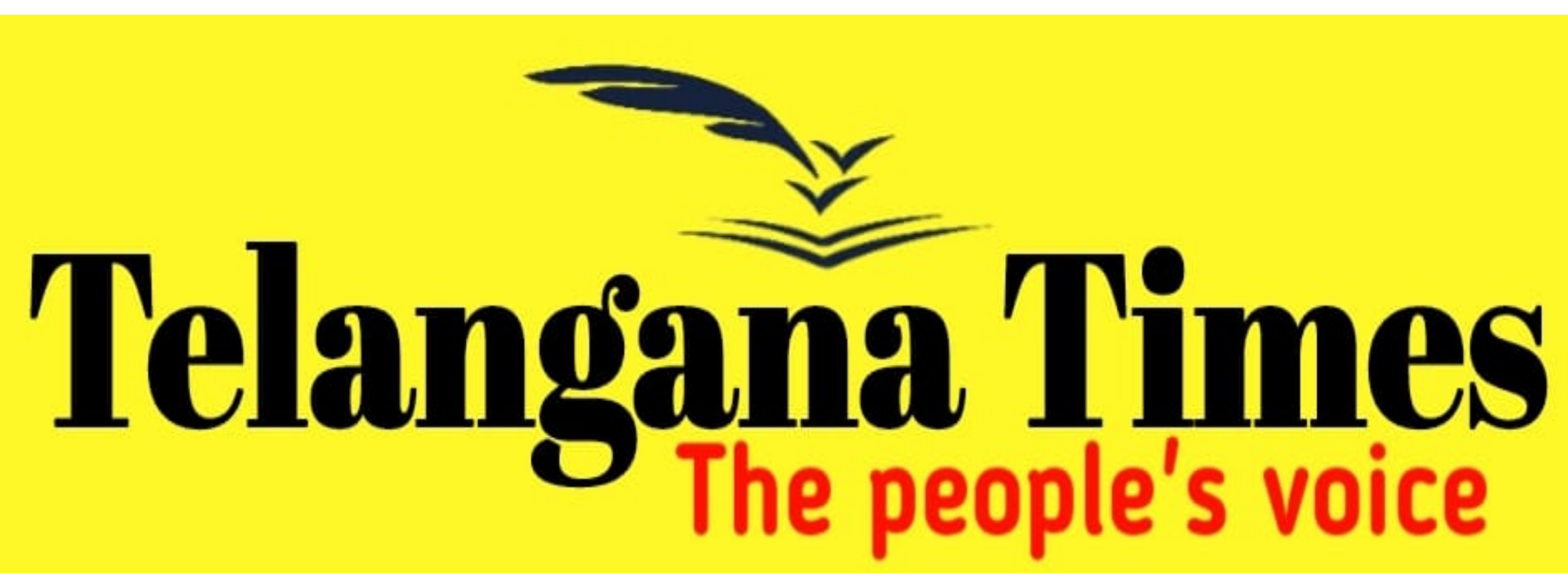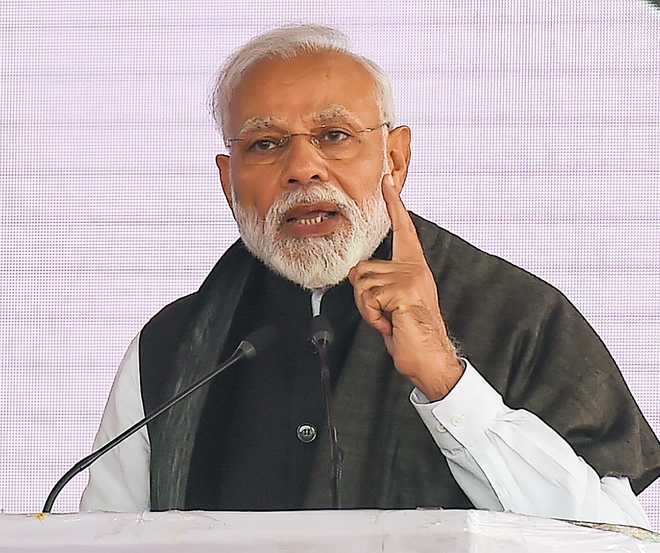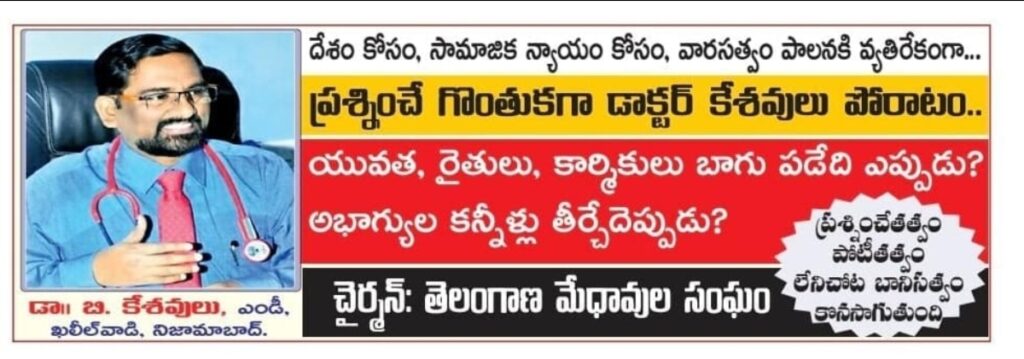In-depth analysis without pretense by Dr. Keshavulu. MD.psy. Osm.
Among the major challenges faced by India, Pakistan-occupied Kashmir (PoK) stands as a significant issue. This is not merely a territorial dispute—it concerns India’s sovereignty, territorial integrity, and national pride. The PoK issue originated due to political miscalculations at the time of India’s partition in 1947, conspiracies by Pakistan, and the manipulative strategies of the British colonial rulers. Today, Prime Minister Narendra Modi faces two primary paths: one, to reclaim PoK through direct military action; the other, to regain it through strategic, political, and democratic means.
The Path of Direct War:
India is the fourth-largest military power in the world. The Indian military possesses advanced weapons, training, and intelligence systems. It has around 1.4 million active personnel, 9,600 tanks, and 2,200 fighter jets. Weapons like Rafale and BrahMos enhance India’s combat capabilities. When we consider the Navy and Air Force, India holds clear superiority in the Asian continent.
Global Military Expenditure Statistics (2024, SIPRI):
India: $76.6 billion
Pakistan: $11.2 billion
However, there are several risks associated with direct war:
Pakistan is a nuclear-armed country, with an estimated 165 nuclear warheads (Bulletin of Atomic Scientists, 2024). A war could severely damage India’s economy. For example, the Russia–Ukraine war led to a 30% decline in Ukraine’s GDP. According to OECD estimates, a single week of war could cost India around ₹2 lakh crores. Human casualties are also a concern—527 Indian soldiers were martyred in the Kargil War. If a war breaks out on multiple fronts, thousands of lives may be lost.
Estimated War Expenditures:
According to retired Lieutenant General Syed Ata Hasnain – “A direct war now would isolate India internationally. Strategically, India must focus on alternative responses. The growing discontent among PoK’s people is becoming a powerful strategic tool for India.” In 2024, 83 protests were recorded in PoK. Areas like Muzaffarabad, Gilgit, and Baltistan witnessed rising anger over power cuts, water shortages, and opposition to the Pakistani Army. Peaceful movements, rising awareness among PoK residents, and student unions have become significant news in national media.
Protests in PoK (2024):
Muzaffarabad: 37
Gilgit: 26
Baltistan: 20
Anti-Pak Sentiment in PoK (Terra Research Survey – 2024):
62% expressed dissatisfaction with Pakistan’s governance
41% are considering integration with India
18% want complete independence
Professor Brahma Chellaney commented: “The rising dissatisfaction among PoK citizens must be utilized strategically. India can support this as a ‘true democratic movement’.”
International Support:
In today’s global politics, peaceful methods are preferred. Countries like the U.S., U.K., and France may not support Pakistan, but they strongly oppose direct war. According to UN Resolution 47, the will of the people must be respected.
American Institute for Peace (2025):
“If India bases its claim on public opinion in PoK, global support will strengthen further.”
International Crisis Group (Germany):
“Military rule in Pakistan suppresses the sentiments of PoK citizens. India should highlight this on international platforms.”
Indian Public Opinion:
A survey conducted by the Center for Strategic Studies in March 2025 found:
Support for direct war: 42%
Preference for strategic resolution: 51%
Neutral: 7%
This suggests that the public largely supports a peaceful approach. Especially the youth, IT professionals, and educationists favor strategic methods.
Historical Experience:
India’s role in the 1971 Bangladesh Liberation War is an example of a strategic war with international support. But back then, Pakistan didn’t possess nuclear weapons. Now, alliances between China, Pakistan, and the U.S. play a significant role. China has invested heavily in PoK under the OBOR project, giving the region strategic importance.
Modi’s Strategic Calculations:
If Modi seeks electoral gain, the war path might be politically beneficial. But in the long run, a strategic and peaceful path could earn him international recognition and a place in history. It would also ensure India’s long-term security architecture. In a 2024 speech, Modi said:
“PoK residents are already in our hearts. When they become conscious of their rights, India will respond.”
A Third Path – The Hybrid Strategy:
This could be the most preferable route for Modi. It involves supporting public awareness in PoK while simultaneously putting diplomatic and economic pressure on Pakistan through international platforms.
Hybrid Strategic Measures:
Highlighting students’ issues in PoK before the United Nations
Documenting human rights violations in Gilgit-Baltistan through video evidence
Raising discussions on Pakistan’s economic condition in forums like IMF and FATF
Role of Third Parties:
China: Through the CPEC project, China is developing trade routes in PoK, making the region strategically crucial.
Iran: By cooperating on the development of Chabahar Port, Iran is providing India with alternative trade routes.
Russia: Although traditionally a friend of India, Russia currently remains neutral due to China–Pakistan relations.
What Happens After Modi?
Future Indian leadership must also have a clear strategy regarding PoK. This should not be limited to Modi’s tenure alone but must become a permanent component of India’s national security policy. Regardless of political differences, all parties should have a unified stance on PoK.
Historical Conclusion:
PoK is the heart of India. The confidence in reclaiming it under Modi’s leadership is high among the people. However, if the path to achieve it is peaceful—it can bring international respect, economic stability, and public consensus. The decision Modi makes will shape India’s future direction. Ultimately, reclaiming PoK will require not just military might but also strategic wisdom, international support, and the awakening of public consciousness. The path Modi chooses will determine not only national security but also the trust of the people. This is a decision that will become part of history.








